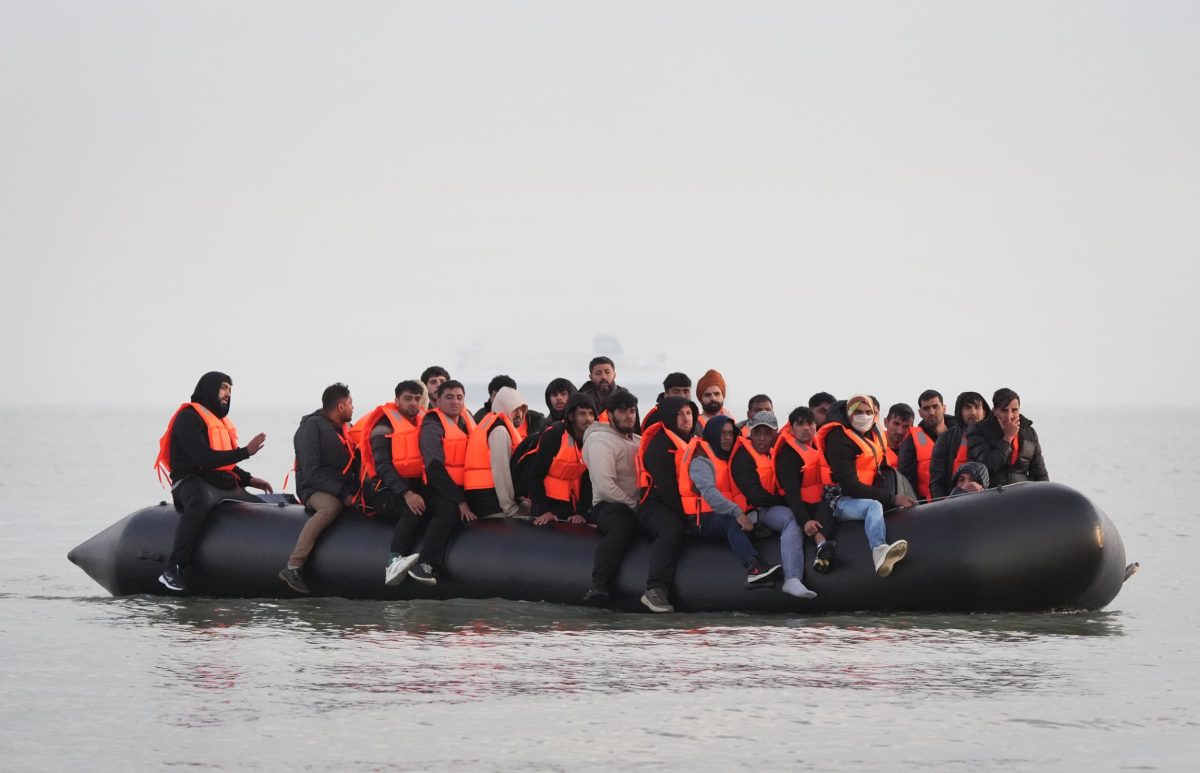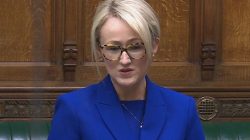Rising Pressure on the UK Government to Address Channel Crossings
The UK government is facing increasing pressure to take decisive action against the rising number of small boat crossings in the English Channel. In the first half of this year alone, over 20,000 people arrived by sea, prompting urgent discussions among policymakers and political leaders. Prime Minister Keir Starmer is expected to address the issue during a meeting with French President Emmanuel Macron, as both nations seek collaborative solutions to the ongoing crisis.
The Home Office has launched a “nationwide blitz” targeting asylum seekers who are working illegally, with a particular focus on gig economy platforms such as Uber Eats and Deliveroo. While these measures aim to enforce existing laws, more radical policy options are reportedly being considered behind the scenes.
Digital ID Cards: A Controversial Proposal
One of the most contentious ideas under discussion is the introduction of a national digital ID system. This would allow authorities to monitor immigration status and combat illegal employment. Several European countries, including France, Germany, and the Netherlands, already use similar systems that link biometric data to work permits, benefits access, and public service eligibility.
In the UK, the concept of digital ID cards has long been politically sensitive. Critics from across the political spectrum worry that it could lead to excessive surveillance and erode civil liberties. A previous ID card scheme proposed under the Labour government was scrapped by the coalition in 2010. However, recent reports suggest that the idea is being revisited, particularly as part of broader efforts to tackle illegal employment.
Labour’s upcoming Border Security, Asylum and Immigration Bill is expected to include provisions for stricter right-to-work checks. If passed, this legislation could reignite calls for a new digital ID system.
Restricting Access to Benefits
Another potential measure involves temporarily restricting access to benefits for asylum seekers. Currently, individuals granted refugee status can claim Universal Credit, access the NHS, and apply for social housing on the same basis as British citizens. This is a key element of refugee protection law.
The government may consider delaying benefit access for new arrivals, requiring them to demonstrate steps toward integration—such as securing employment or completing English language training—before receiving full support. Supporters argue that this would discourage economic migrants from exploiting the asylum system, particularly where welfare entitlements are seen as an incentive.
However, any changes would need to comply with the Refugee Convention and UK equality law, making legal challenges likely unless the policy is carefully crafted.
Expanding Family-Based Safe Routes
Campaigners and the French government have also urged Labour to introduce new safe and legal routes for asylum seekers with family already in the UK. Currently, only limited family reunification pathways exist, primarily for children and spouses. Advocates argue that expanding these routes could reduce demand for people smuggling and Channel crossings.
In January, the Refugee Council called for 10,000 refugee visas to be issued to lower the risk of deaths during dangerous crossings. France and Germany operate more extensive family reunion schemes under EU law, including humanitarian visas and community sponsorship programmes.
While Labour has previously argued that safe routes alone cannot solve the crisis, there is growing pressure to consider issuing more visas. However, this approach carries risks, as it could encourage more people to attempt crossings before new rules take effect.
Tighter Enforcement on Delivery Platforms
The government has already begun cracking down on illegal employment among asylum seekers in the gig economy. Recent operations have targeted food delivery platforms, where migrants have been found working using rented or borrowed accounts.
Asylum seekers are generally not allowed to work unless their claim has been pending for over 12 months and they are on the Government’s shortage occupation list. The Home Office has pledged to increase unannounced inspections of hotels and hostels, while companies like Uber Eats and Deliveroo have agreed to tighten verification checks.
These measures will be rolled out over the next 90 days, with Just Eat increasing its facial recognition checks from monthly to daily. Labour ministers have indicated that future legislation will make it a legal obligation for platforms to prevent illegal working, with penalties for non-compliance.
Crackdown on Social Media Content
There have been calls for the government to take a tougher stance on social media platforms that host videos promoting illegal Channel crossings. Short clips on TikTok, Instagram, and Snapchat sometimes show small boats departing from northern France or arriving on British beaches, often accompanied by price lists or contact details for smugglers.
While the Online Safety Act allows ministers to compel the removal of harmful content, small boat videos are not currently classified as a priority offence. Extending the legislation to cover this material would pose legal and enforcement challenges, but there is no clear indication that Labour plans to pursue this route at this time.







